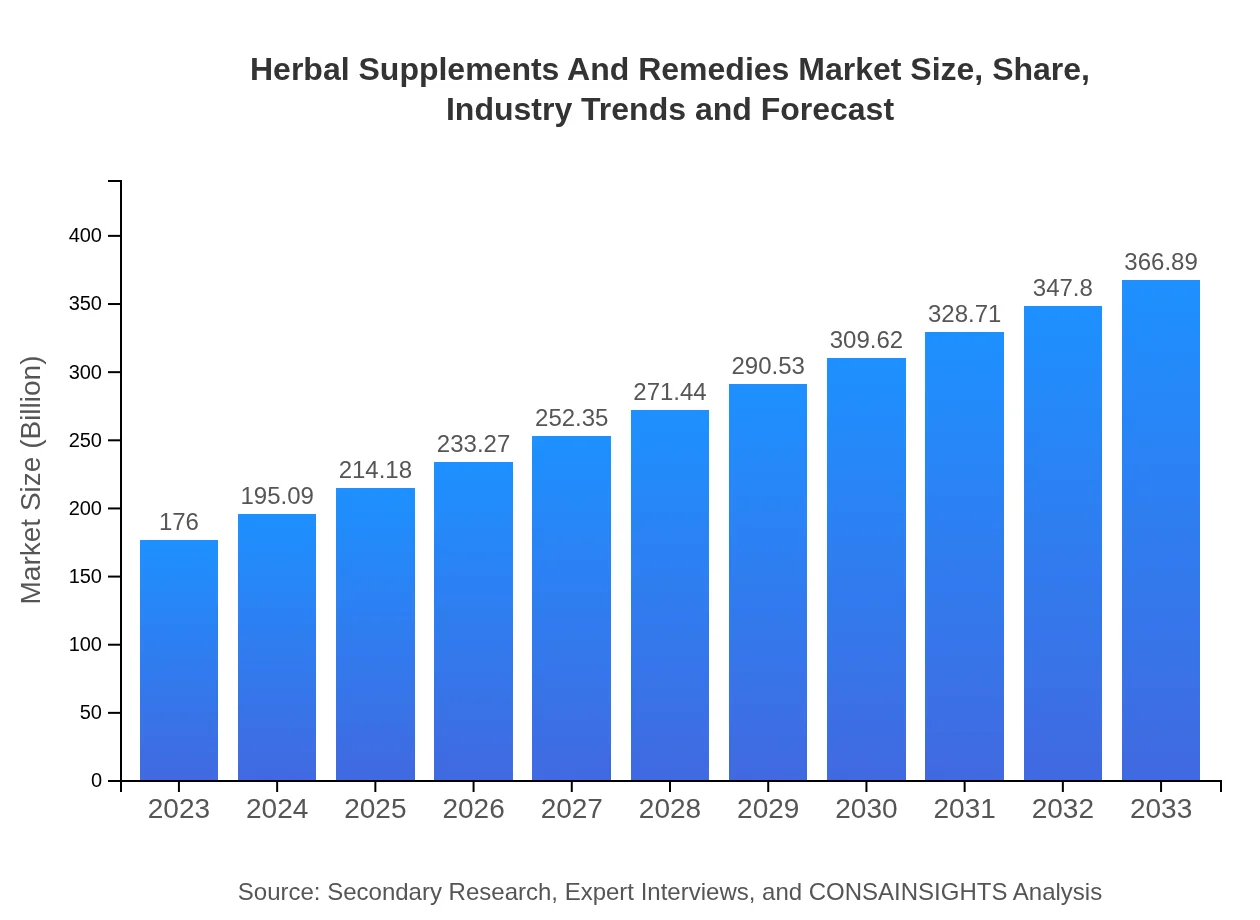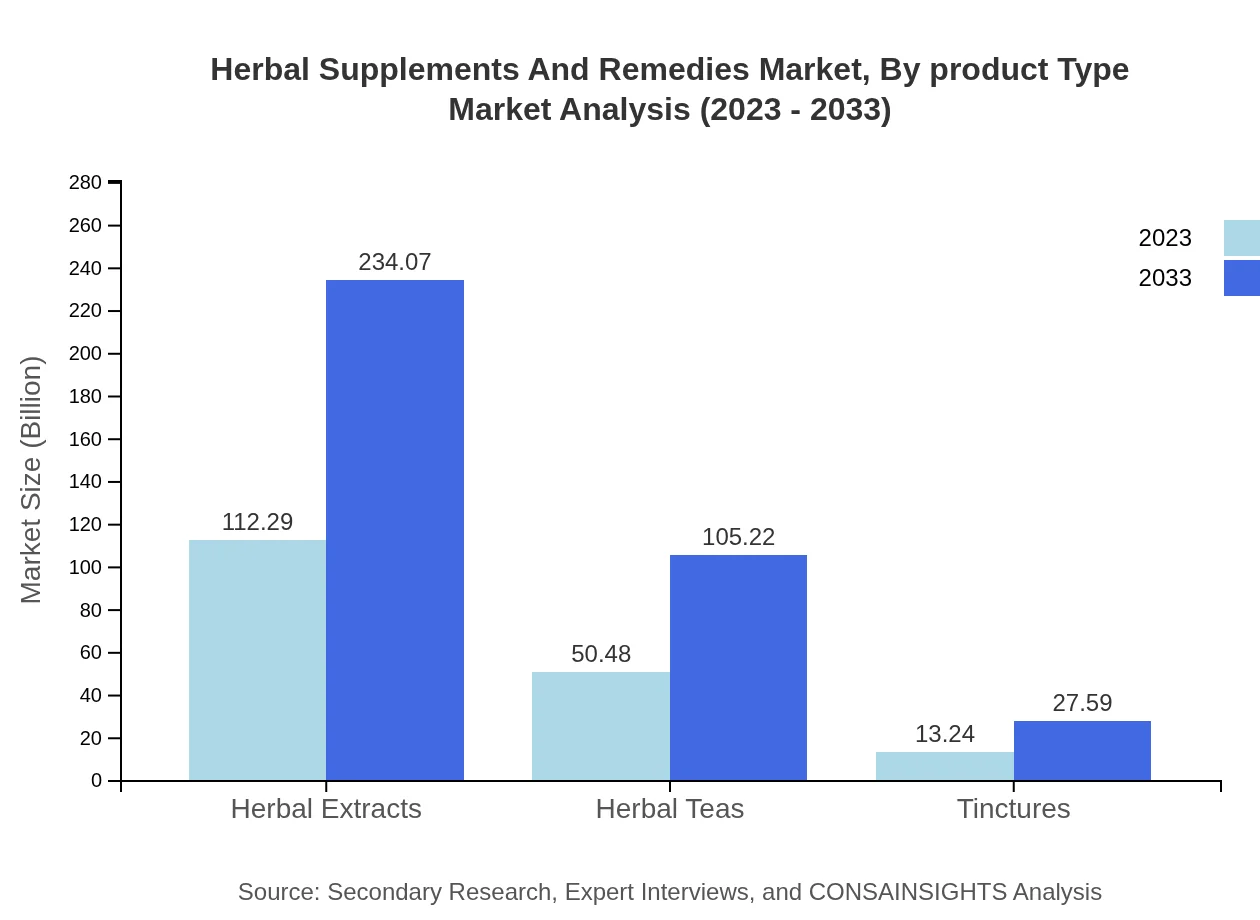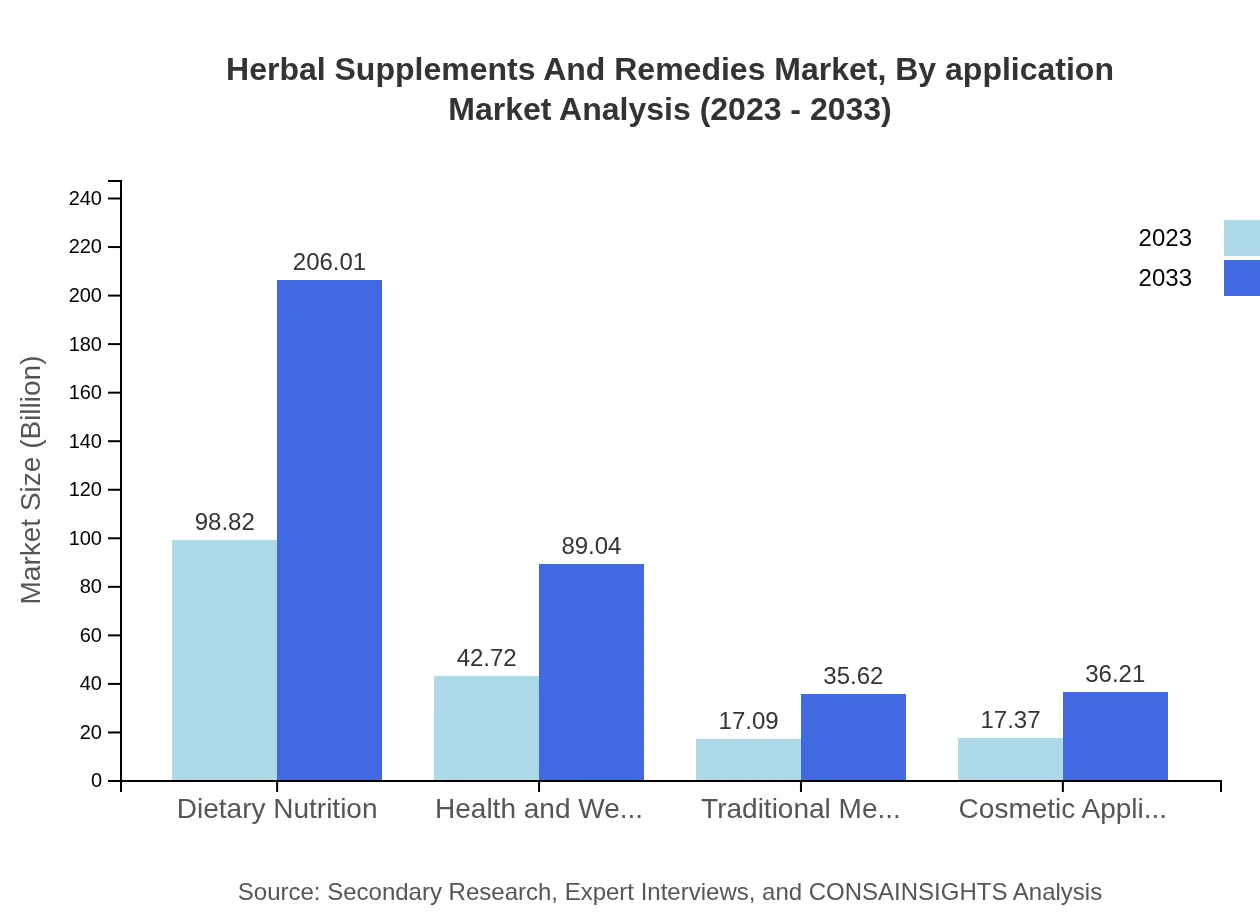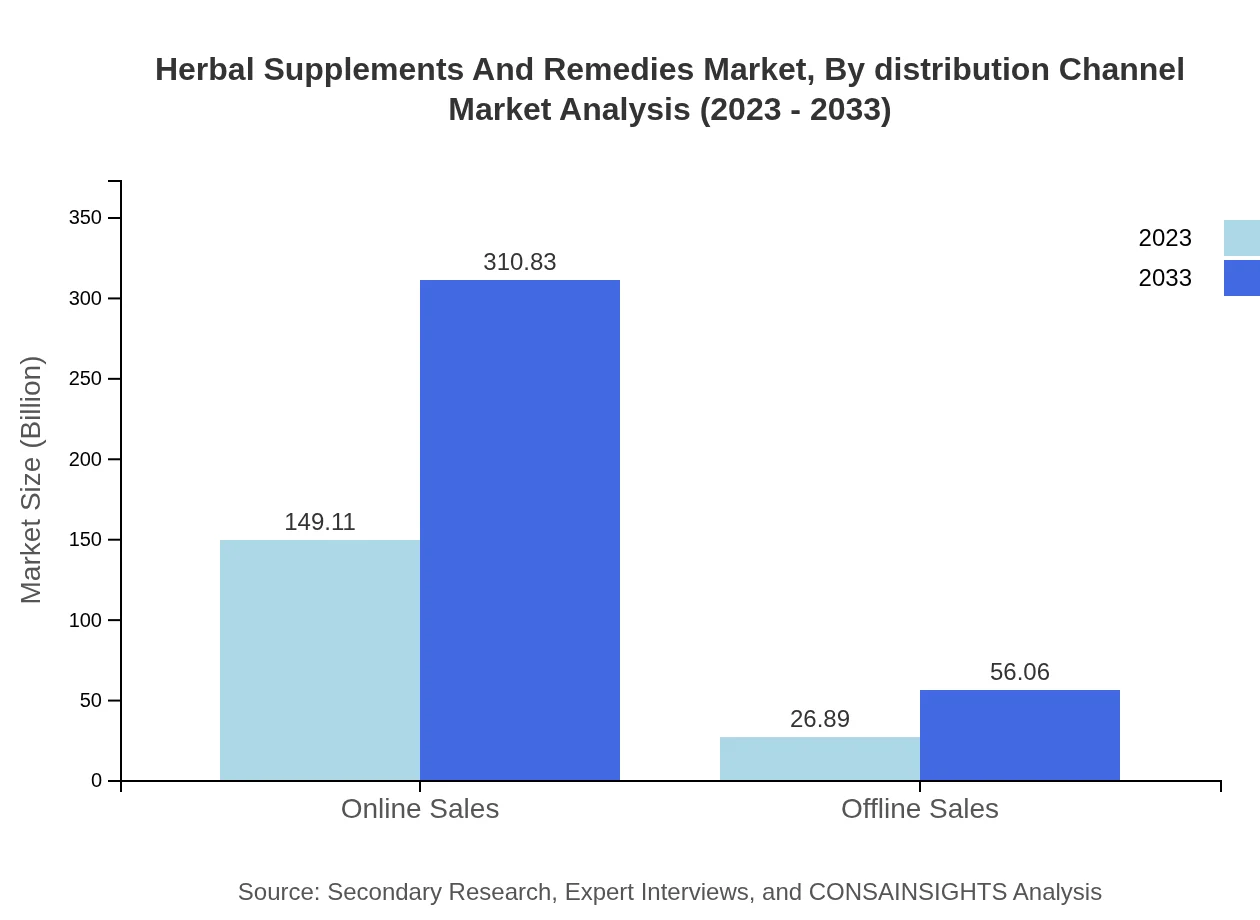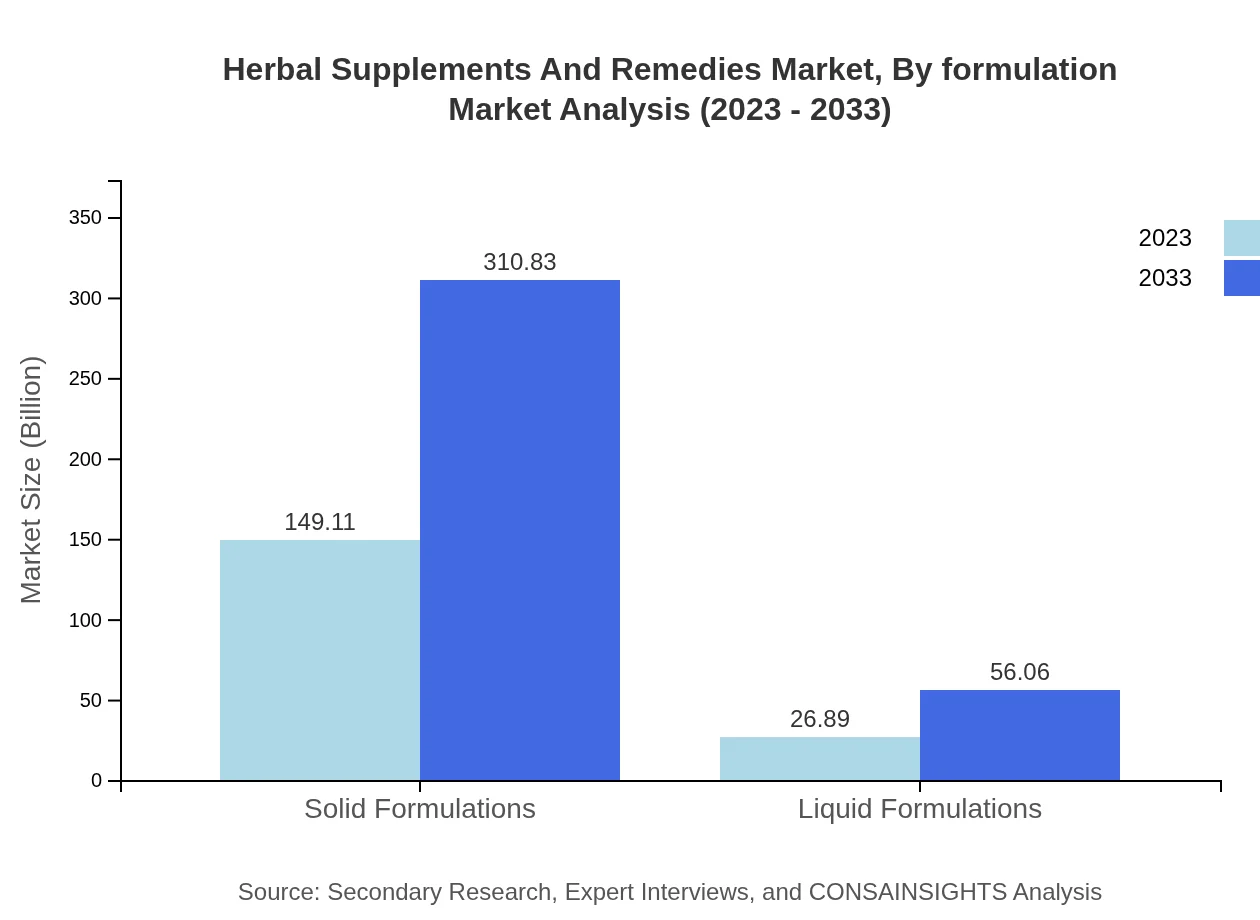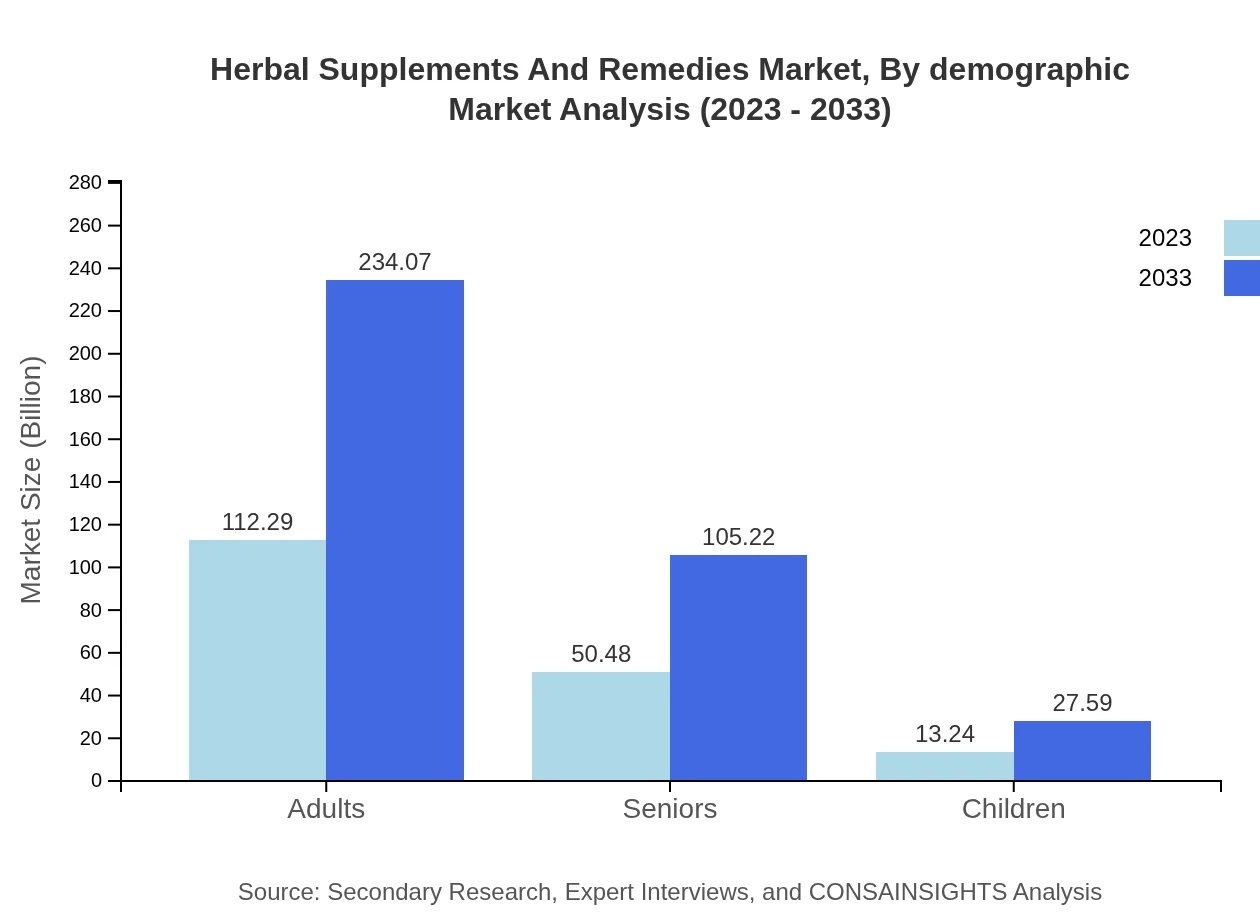Herbal Supplements And Remedies Market Report
Published Date: 31 January 2026 | Report Code: herbal-supplements-and-remedies
Herbal Supplements And Remedies Market Size, Share, Industry Trends and Forecast to 2033
This report provides an in-depth analysis of the Herbal Supplements And Remedies market, projecting trends, growth potential, and regional insights from 2023 to 2033. It focuses on market segmentation, industry dynamics, and the competitive landscape to equip stakeholders with actionable insights.
| Metric | Value |
|---|---|
| Study Period | 2023 - 2033 |
| 2023 Market Size | $176.00 Billion |
| CAGR (2023-2033) | 7.4% |
| 2033 Market Size | $366.89 Billion |
| Top Companies | Herbalife Nutrition Ltd, Nature's Way, Gaia Herbs |
| Last Modified Date | 31 January 2026 |
Herbal Supplements And Remedies Market Overview
Customize Herbal Supplements And Remedies Market Report market research report
- ✔ Get in-depth analysis of Herbal Supplements And Remedies market size, growth, and forecasts.
- ✔ Understand Herbal Supplements And Remedies's regional dynamics and industry-specific trends.
- ✔ Identify potential applications, end-user demand, and growth segments in Herbal Supplements And Remedies
What is the Market Size & CAGR of Herbal Supplements And Remedies market in 2023?
Herbal Supplements And Remedies Industry Analysis
Herbal Supplements And Remedies Market Segmentation and Scope
Tell us your focus area and get a customized research report.
Herbal Supplements And Remedies Market Analysis Report by Region
Europe Herbal Supplements And Remedies Market Report:
The European market is expected to evolve from $44.11 billion in 2023 to $91.94 billion by 2033, driven by regulatory support for natural health solutions and a cultural shift towards holistic health. The regulatory landscape encourages the use of quality herbal products, thereby boosting investor confidence.Asia Pacific Herbal Supplements And Remedies Market Report:
In the Asia Pacific region, the market is anticipated to grow from $33.70 billion in 2023 to $70.26 billion by 2033, driven by the traditional use of herbal remedies and the increasing acceptance of herbal products in mainstream healthcare. Countries like China and India are dominant players, with a vast array of herbal practices and a growing export potential for herbal supplements.North America Herbal Supplements And Remedies Market Report:
The North American market, valued at $61.34 billion in 2023, is projected to grow to $127.86 billion by 2033, propelled by a robust wellness culture and high disposable income. The United States leads in innovation and the development of herbal products that cater to environmentally conscious consumers, tapping into demand for ethical sourcing and manufacturing.South America Herbal Supplements And Remedies Market Report:
The South American herbal supplements market will increase from $12.58 billion in 2023 to $26.23 billion in 2033. The region is experiencing a rise in herbal product awareness and local sourcing of natural ingredients, turbocharged by a push towards sustainability and organic farming practices.Middle East & Africa Herbal Supplements And Remedies Market Report:
In the Middle East and Africa, the market is projected to grow from $24.27 billion in 2023 to $50.59 billion by 2033, supported by growing healthcare access and the incorporation of herbal remedies in traditional medicine. Emerging markets in these regions are combining traditional practices with modern clinical approaches.Tell us your focus area and get a customized research report.
Herbal Supplements And Remedies Market Analysis By Product Type
The Herbal Supplements And Remedies market is diverse, with dietary nutrition dominating the segment, expected to grow from $98.82 billion in 2023 to $206.01 billion by 2033. Health and wellness supplements follow, growing from $42.72 billion to $89.04 billion in the same period. Traditional medicine remains relevant, while cosmetic applications are also emerging as key focus areas.
Herbal Supplements And Remedies Market Analysis By Application
As the health trends continue evolving, applications for adult consumers hold the largest market share, expanding from $112.29 billion to $234.07 billion by 2033. Seniors represent a key demographic as well, increasing from $50.48 billion to $105.22 billion, highlighting the rising importance of herbal supplements among aging populations.
Herbal Supplements And Remedies Market Analysis By Distribution Channel
The distribution channels for herbal supplements have diversified significantly, with online sales flourishing, moving from $149.11 billion in 2023 to $310.83 billion by 2033, demonstrating consumer preference for convenience and variety. Offline sales will also grow, but at a slower pace.
Herbal Supplements And Remedies Market Analysis By Formulation
Solid formulations, including tablets and capsules, represent the largest segment at $149.11 billion, anticipated to rise to $310.83 billion by 2033. Liquid formulations will also grow, driven by consumer preferences for easy-to-consume products.
Herbal Supplements And Remedies Market Analysis By Demographic
The market targeting adults is extensive, with a growth trajectory from $112.29 billion to $234.07 billion. The senior demographic is also growing rapidly, indicating emphasis on health management as they age, with growth projections from $50.48 billion to $105.22 billion.
Herbal Supplements And Remedies Market Trends and Future Forecast
Tell us your focus area and get a customized research report.
Global Market Leaders and Top Companies in Herbal Supplements And Remedies Industry
Herbalife Nutrition Ltd:
Herbalife is a global nutrition company that offers a range of dietary supplements and personal care products, emphasizing a plant-based approach to health.Nature's Way:
Nature's Way is one of the leading herbal supplement brands in North America, focusing on quality and sourcing premium herbal ingredients.Gaia Herbs:
Gaia Herbs specializes in herbal remedies and dietary supplements, known for their commitment to sustainable and organic sourcing of ingredients.We're grateful to work with incredible clients.









FAQs
What is the market size of herbal Supplements And Remedies?
The herbal supplements and remedies market is currently valued at approximately $176 billion. It is expected to grow at a CAGR of 7.4% from 2023 to 2033, indicating strong demand and expanded consumer interest in natural health products.
What are the key market players or companies in the herbal Supplements And Remedies industry?
Key players in the herbal supplements and remedies market include companies like Herbalife, Amway, GNC Holdings, and Nature's Bounty among others. These companies are recognized for their extensive product ranges and innovation in natural wellness solutions.
What are the primary factors driving the growth in the herbal Supplements And Remedies industry?
Growth in this industry is driven by increasing consumer awareness of health and wellness, a shift towards natural remedies over synthetic drugs, and a rise in preventive healthcare measures. Additionally, aging populations are looking for effective herbal solutions.
Which region is the fastest Growing in the herbal Supplements And Remedies market?
The fastest-growing region in the herbal supplements and remedies market is North America, projected to grow from $61.34 billion in 2023 to $127.86 billion by 2033, reflecting a robust demand in the region for natural health products.
Does ConsaInsights provide customized market report data for the herbal Supplements And Remedies industry?
Yes, ConsaInsights offers customized market report data tailored to specific needs within the herbal supplements and remedies industry, enabling businesses to focus on targeted insights and strategic decision-making.
What deliverables can I expect from this herbal Supplements And Remedies market research project?
Expect comprehensive insights including market analysis, growth forecasts, competitive landscape, and regional segmentation data, providing a thorough understanding of key trends and positions within the herbal supplements market.
What are the market trends of herbal Supplements And Remedies?
Current trends in the herbal supplements and remedies market include rising demand for organic and plant-based products, increased online sales channels, and a growing focus on holistic health practices, contributing to dynamic market expansion.

